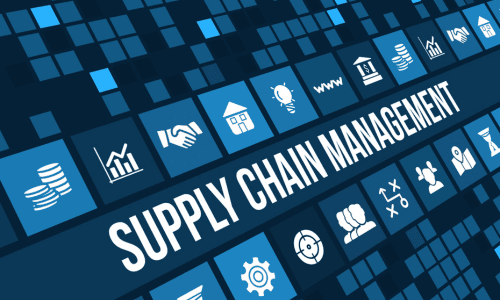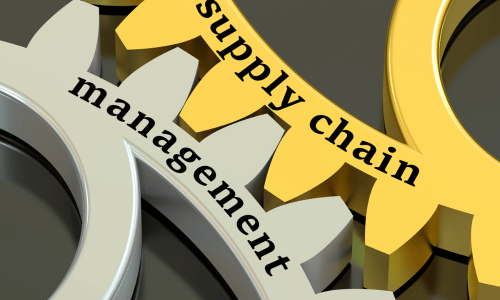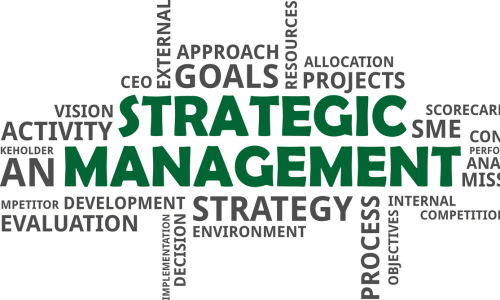
Efficient supply chain management is crucial for businesses to deliver products and services seamlessly. By refining operations, vendor relationships, and logistics, companies can optimize their revenue potential. Let’s explore key strategies for optimizing supply chain operations:
Optimizing Supply Chain Operations

Efficient internal operations are the backbone of a successful supply chain. Here are some best practices to consider:
Forecasting Demand
- Use data analytics to predict required inventory volumes for different products. Take into account sales inputs, seasonality, promotions, and economic factors to make accurate forecasts.
Inventory Management
- Implement perpetual inventory counting to maintain accurate inventory records. Optimize reorder points and safety stock levels to prevent excess inventory carrying costs.
Production Planning
- Schedule production runs and work orders to align with forecasted demand. Ensure that lead times are accommodated in your production planning.
Materials Planning
- Plan material needs based on the bill of materials (BOM). Take procurement and delivery lead times into account to ensure a smooth flow of materials.
Warehouse Management
- Design efficient warehouse layouts and storage configurations to minimize wasted space and time. Utilize warehouse management systems (WMS) to support workflows and streamline operations.
Packaging/Kitting
- Implement packaging or kitting processes to bundle items efficiently for shipment. Consider automation to reduce repetitive tasks.
Transportation Management
- Optimize outbound shipping by evaluating carriers and routes. Leverage transportation management systems (TMS) to make informed decisions and reduce transportation costs.
Performance Metrics
- Define key performance indicators (KPIs) to measure costs, quality, delivery times, and inventory turns. Regularly assess your supply chain’s performance and identify areas for improvement.
Efficient internal operations minimize disruptions, reduce delays, and control expenses, all of which are essential for a well-functioning supply chain.
Strategic Vendor Management

Building strong vendor relationships is vital for a smooth supply chain. Here are some best practices when engaging with suppliers:
Sourcing
- Vet potential suppliers thoroughly, considering factors such as cost, quality, reliability, processes, sustainability, locations, and financial stability.
Negotiating
- Use negotiation techniques, such as bidding, volume discounts, and long-term contracts, to secure favorable terms with suppliers.
Code of Conduct
- Ensure that your suppliers conform to ethical, safety, and regulatory standards, aligning with your company’s values.
Compliance
- Ensure that suppliers meet your specifications. Perform inspections and testing as necessary. Be prepared to enforce recalls if needed.
Communication
- Establish clear lines of communication with suppliers and share information such as forecasts, delivery schedules, and any changes promptly to synchronize operations.
Technology Integration
- Utilize technology to link your systems with those of your suppliers through APIs for seamless data transfer and enhanced visibility.
Collaboration
- Work collaboratively with suppliers to solve problems, reduce costs, and improve quality. Provide feedback to help them meet your expectations.
Contingency Planning
- Qualify alternate suppliers to reduce reliance on a single source. Develop contingency plans to address potential disruptions in the supply chain.
Strategic vendor partnerships enhance your supply chain’s agility, continuity, and overall value.
Optimizing Logistics and Delivery

Efficient logistics and outbound fulfillment are essential for retaining customers. Consider the following best practices:
Delivery Models
- Offer a variety of delivery options to customers, such as in-store pickup, local couriers, drones, freight shipping, and white-glove services. Provide real-time tracking information to enhance the customer experience.
Route Optimization
- Use routing algorithms and consolidation strategies to maximize load efficiency, reduce mileage, and minimize fuel costs.
Contingency Planning
- Develop contingency plans to quickly reroute goods in case of disruptions, such as adverse weather conditions or unexpected events.
Returns Management
- Make the returns and exchanges process convenient for customers. Assess the root causes of returns, including whether goods were damaged or other issues.
Automation
- Implement automation technologies, such as autonomous vehicles and robots, to reduce labor costs and improve efficiency in logistics operations.
Data Integration
- Connect your logistics systems with your sales channels and enterprise resource planning (ERP) systems to achieve end-to-end visibility and streamline processes.
Continuous Improvement
- Continuously gather customer feedback and analyze analytics to refine your logistics processes and enhance the overall customer experience.
Sustainability
- Assess and minimize the environmental impact of your shipping methods, materials, and packaging to align with sustainability goals.
Excellent logistics not only meet customer expectations but also build loyalty and enhance brand reputation.
In conclusion, analyzing and optimizing every aspect of the supply chain process is essential for businesses looking to maximize efficiency, reduce costs, and deliver quality products on time. Continuous improvement is key to sustaining a competitive advantage in today’s dynamic business environment.
We’ve unpacked a lot today at Biz Step Ladder, and now it’s your turn to add to the dialogue. Do you have insights or experiences that could expand on what we’ve discussed? Perhaps you’ve identified an angle we haven’t covered. Jump into the conversation below with your comments and let’s continue the learning journey together. Your input is not just welcome—it’s a vital part of our community’s growth. So, what are your thoughts? Share them below and let’s enrich our business wisdom collectively!
Discover related content by exploring Starting a business, common pitfalls, and resources for new entrepreneurs.





